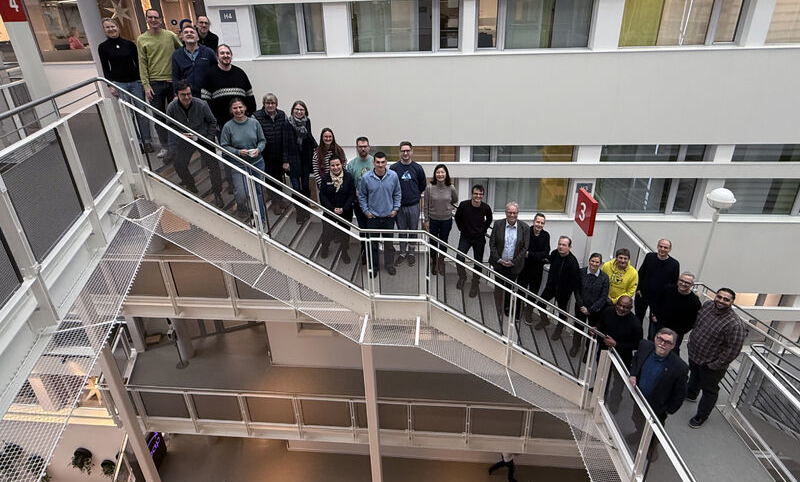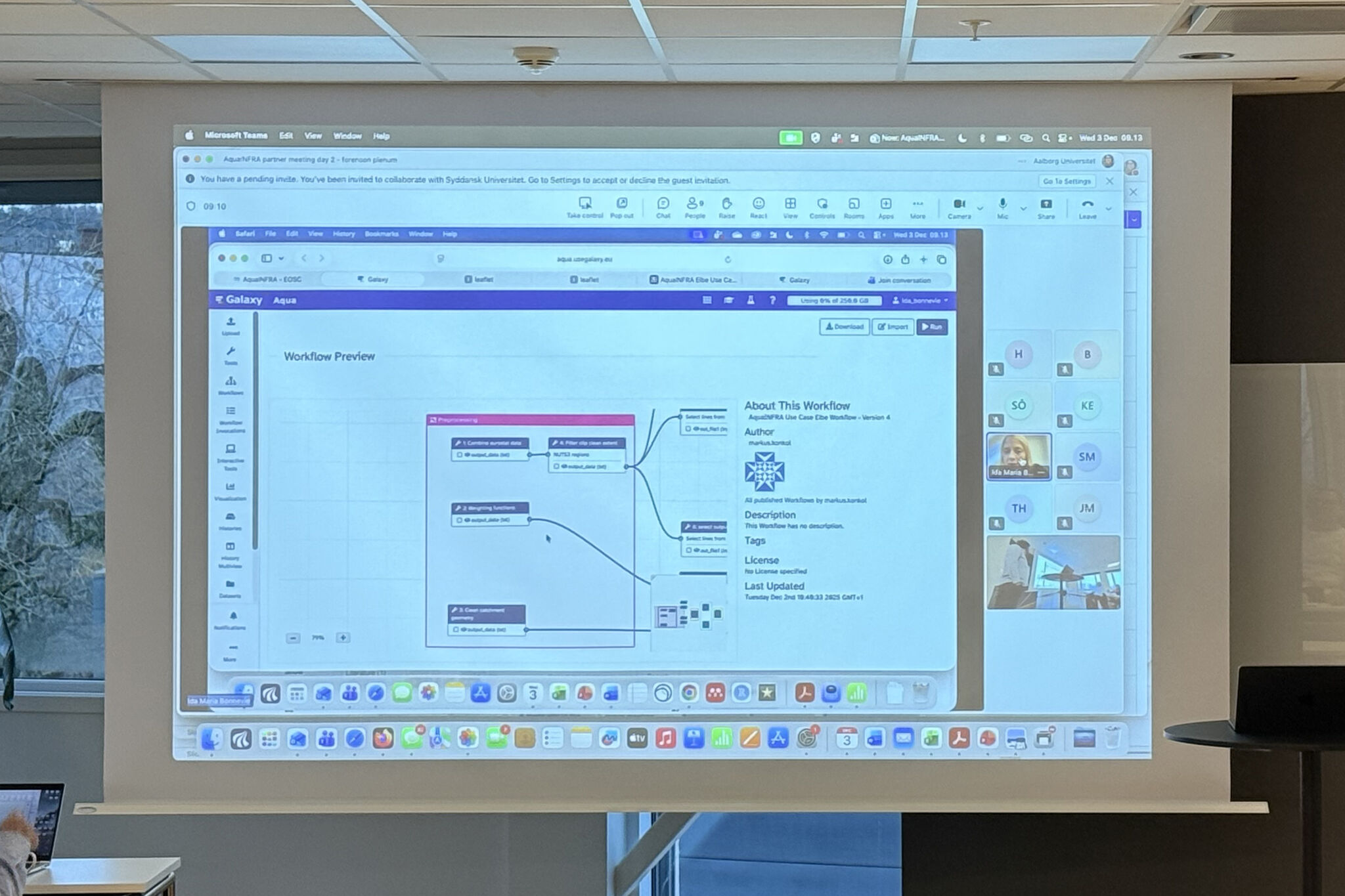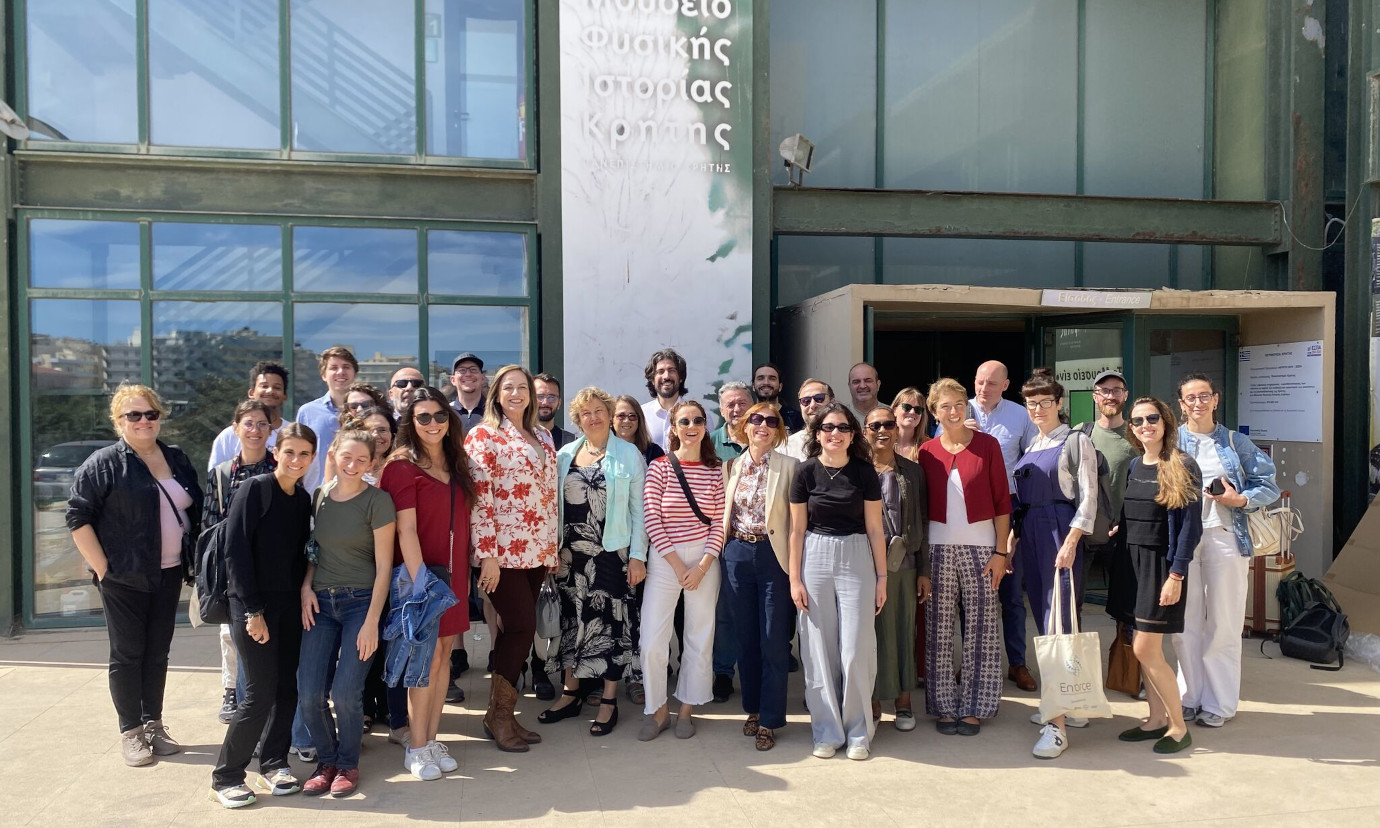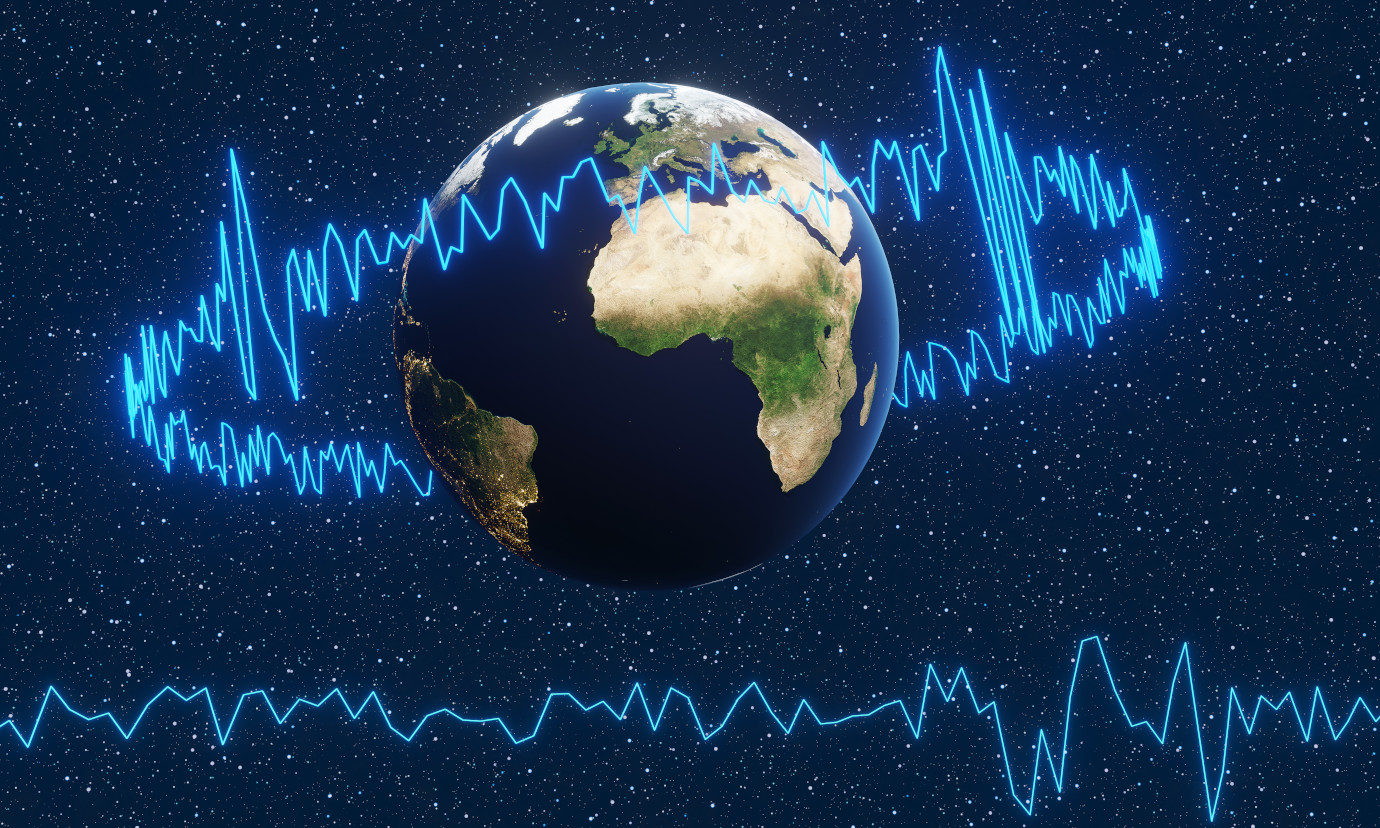
The year is coming to an end and this usually means one thing: It’s time for the AquaINFRA partner meeting again! As always, it was very nice to meet everyone in person this year in Oslo. We usually communicate via email and video calls. For the past three years, we have been developing the AquaINFRA research data infrastructure. It consists of an interaction platform for locating aquatic resources and a Virtual Research Environment based on Galaxy for analyzing data and creating workflows. Integrating the analysis scripts developed by AquaINFRA researchers into the Galaxy platform took some time, but it was worth the effort, as we learned at this year’s plenary. Many of the use cases demonstrated their progress and showed executable workflows. Some even created a Data-to-Knowledge Package. Although we’re aware that there are still some challenges ahead of us, it was very nice to see our ideas become reality and the pieces come together. We have one year left until the project ends.


